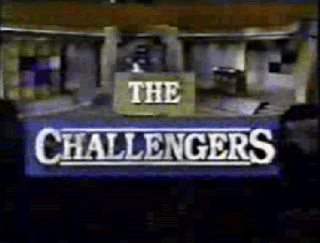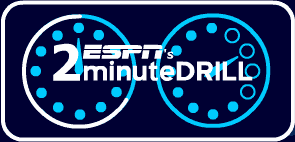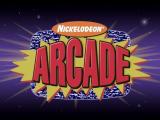Related Research Articles

Trivia Trap is an American game show produced by Mark Goodson Productions. It was created by producer Goodson and originally ran from October 8, 1984 to April 5, 1985 on ABC. The game featured two teams of three contestants each competing against each other to answer trivia questions in various formats. Bob Eubanks was the host, and Gene Wood announced during the first two weeks. Charlie O'Donnell announced during the third week and was replaced by Bob Hilton for the remainder of the series.

Supermarket Sweep is an American television game show. Teams of contestants answer trivia questions before competing in a timed race to gather grocery items from the aisles of a supermarket. The original show was broadcast on ABC from December 20, 1965 to July 14, 1967. Later seasons aired on Lifetime from February 5, 1990 to June 16, 1995, and later on PAX from April 3, 2000 to May 23, 2003, with reruns airing until March 26, 2004. Another version of the show aired from October 18, 2020 to January 30, 2022, also on ABC.

The Challengers is an American game show that aired in syndication during the 1990-91 television season The series was created by Ron Greenberg and was based largely on his 1969 production, The Who, What, or Where Game. Dick Clark presided over the show with Don Morrow announcing. The Challengers was a joint production of Ron Greenberg Productions and Dick Clark Productions, with Buena Vista Television as distributor.

The Cross-Wits is an American television game show. Two contestants, each paired with two celebrities, competed to fill in words in a crossword puzzle. It premiered on December 15, 1975, and lasted for five seasons until its cancellation on September 12, 1980. The show was hosted by Jack Clark, with Jerri Fiala as hostess. Announcing duties were handled by John Harlan, Jay Stewart, and Jerry Bishop. The show was produced by Ralph Edwards Productions and distributed by Metromedia Producers Corporation.

Think Fast is an American children's game show which aired on Nickelodeon from May 1, 1989, to March 30, 1990, with reruns airing weekly until June 29, 1991.

Debt is an American game show hosted by Wink Martindale which aired on Lifetime from June 3, 1996, to August 14, 1998. It was produced by Buena Vista Television, a part of The Walt Disney Company. The show featured contestants who were trying to earn money to get out of debt. It had a similar format to Jeopardy!, on which contestants answered trivia. However, it targeted a younger audience and placed a larger emphasis on popular culture.
Fandango is an American television game show. It aired on The Nashville Network from March 8, 1983 to August 26, 1988, with reruns airing through March 31, 1989, when it was replaced by Top Card. Contestants competed to answer trivia questions about country music. The show was hosted by country music singer Bill Anderson, who was joined by Blake Pickett as co-host in 1987. Disc jockey Bill Robinson served as announcer and the voice of the show's setpiece, an oversized jukebox named "Edgar the Talking Jukebox".

2 Minute Drill is an ESPN game show based on the general knowledge UK game show Mastermind. The program aired from September 11, 2000 to December 28, 2001. ESPN Classic aired reruns of the series daily at 11:30 a.m. Eastern.

Wheel 2000 is a children's version of the American game show Wheel of Fortune, produced by Scott Sternberg Productions and Columbia TriStar Television. The show was created by Scott Sternberg and was hosted by David Sidoni, with Tanika Ray providing voice work and motion capture for a virtual reality hostess named "Cyber Lucy".
Mad Libs is an American children's game show based on the book/word game series. It aired on the Disney Channel from July 26, 1998 to mid-1999, and was hosted by David Sidoni. Dick Clark and J. D. Roth produced the show.
Trashed is a television game show that ran on MTV from February 14 to July 23, 1994, with Chris Hardwick as host.

Wheel of Fortune is a British television game show based on the American show of the same name created by Merv Griffin. Contestants compete to solve word puzzles, similar to those used in Hangman, to win cash and prizes. The title refers to the show's giant carnival wheel that contestants spin throughout the course of the game to determine their cash and/or prizes.
Family Secrets is a daytime game show, running on NBC from March 22 to June 11, 1993. Bob Eubanks hosted and Orlando-area disc jockey Dean Miuccio announced. The show was taped at the Disney-MGM Studios in Orlando, Florida in front of a live studio audience consisting of theme park guests.
Turn It Up! is a musical game show that aired on MTV from June 30 to December 7, 1990. It was the second game show to be produced and broadcast on the network after Remote Control, produced by Albie Hecht, Alan Goodman, and Fred Seibert, of Chauncey Street Productions in New York City.

Nick Arcade is an American children's game show created by James Bethea and Karim Miteff and hosted by Phil Moore, with Andrea Lively announcing, that aired on Nickelodeon in 1992. It aired originally during weekend afternoons, with reruns airing until September 28, 1997. In the first season, the shows were taped in December 1991 and aired in early 1992. It was taped at Nickelodeon Studios at Universal Studios Florida in Orlando, Florida. In Nick Arcade, two teams of contestants played two initial trivia rounds, with the winning team advancing to the "Video Zone" to play against the virtual "Video Game Wizard" of the day.
Inspiration, Please! is an American game show that aired on the Odyssey Channel from October 1, 1995, until 1998. The show was created by Donald Epstein, who also served as the show's announcer. Robert G. Lee hosted. The show was produced by Trinity Productions at the Trinity TV Studios at Trinity Church at the corner of Broadway and Wall Street in New York City.
Download is an Australian children's game show which aired on the Nine Network from 2000 until 2002. Scott McRae hosted the first two seasons of the show in 2000–2001; he was replaced by Nathan Lloyd for the third season in 2001–2002, while Emily Jade O'Keefe hosted the fourth season of the show. The co-host for the fourth season was Miss Bytes.

Ask Me Another was an hour-long radio puzzle game show that was produced by WNYC and National Public Radio. It was hosted by Canadian American comedian Ophira Eisenberg and featured as its "in-house musician" or "one-man house band" independent rock musician Jonathan Coulton. Episodes of the show were usually recorded at The Bell House in Brooklyn, New York, however the show did go to various states across the country and recorded one or more episodes from those locations. The show was produced by WNYC Studios. During the COVID-19 pandemic in the United States, the show continued taping episodes from the homes of the participants, without a studio audience.

Master Minds is an American game show airing on the Game Show Network. The show debuted on June 10, 2019, under the title Best Ever Trivia Show, hosted by Sherri Shepherd and regularly featuring Ken Jennings, Muffy Marracco, Jonathan Corbblah, Arianna Haut, and Ryan Chaffee. The series was renamed Master Minds on April 6, 2020, with Brooke Burns replacing Shepherd.
Game of Games Suomi is a Finnish version of the American game show Ellen's Game of Games. The show premiered in November 2021 on TV channel MTV3, and will be hosted by Aku Hirviniemi and Janne Kataja, with the show being first to have two official hosts.
References
- ↑ Dillon, Paul (August 17, 1998). "Action! Reel to Reel begins shooting at Universal Studios". Orlando Business Journal. Retrieved February 15, 2020.
- ↑ "How a board game became a game show". The Orlando Sentinel. September 1, 1998. Retrieved May 8, 2022.
- ↑ "Luck runs out for trivia champ". The Orlando Sentinel. December 10, 1998. pp. D1, D7. Retrieved May 8, 2022.